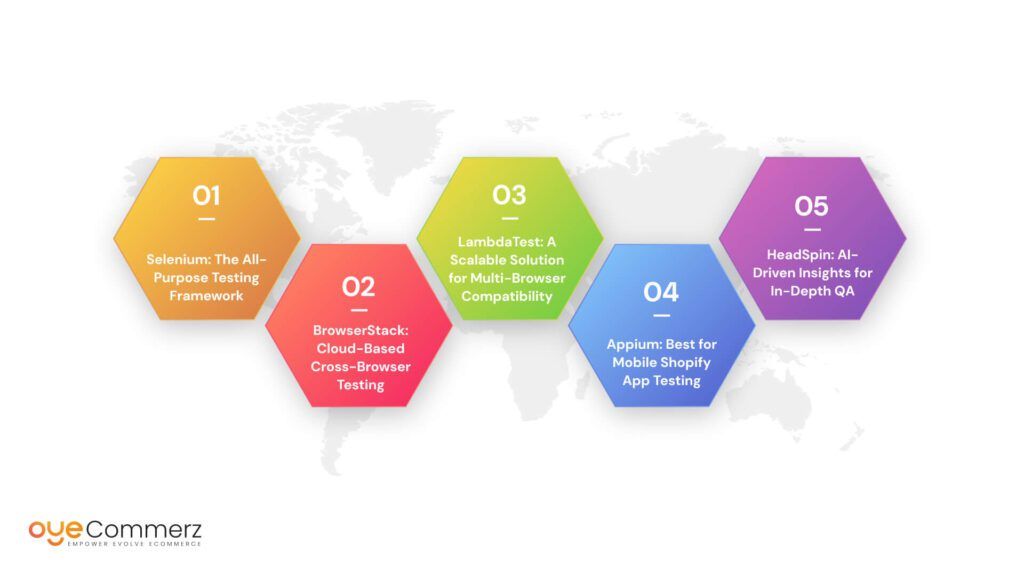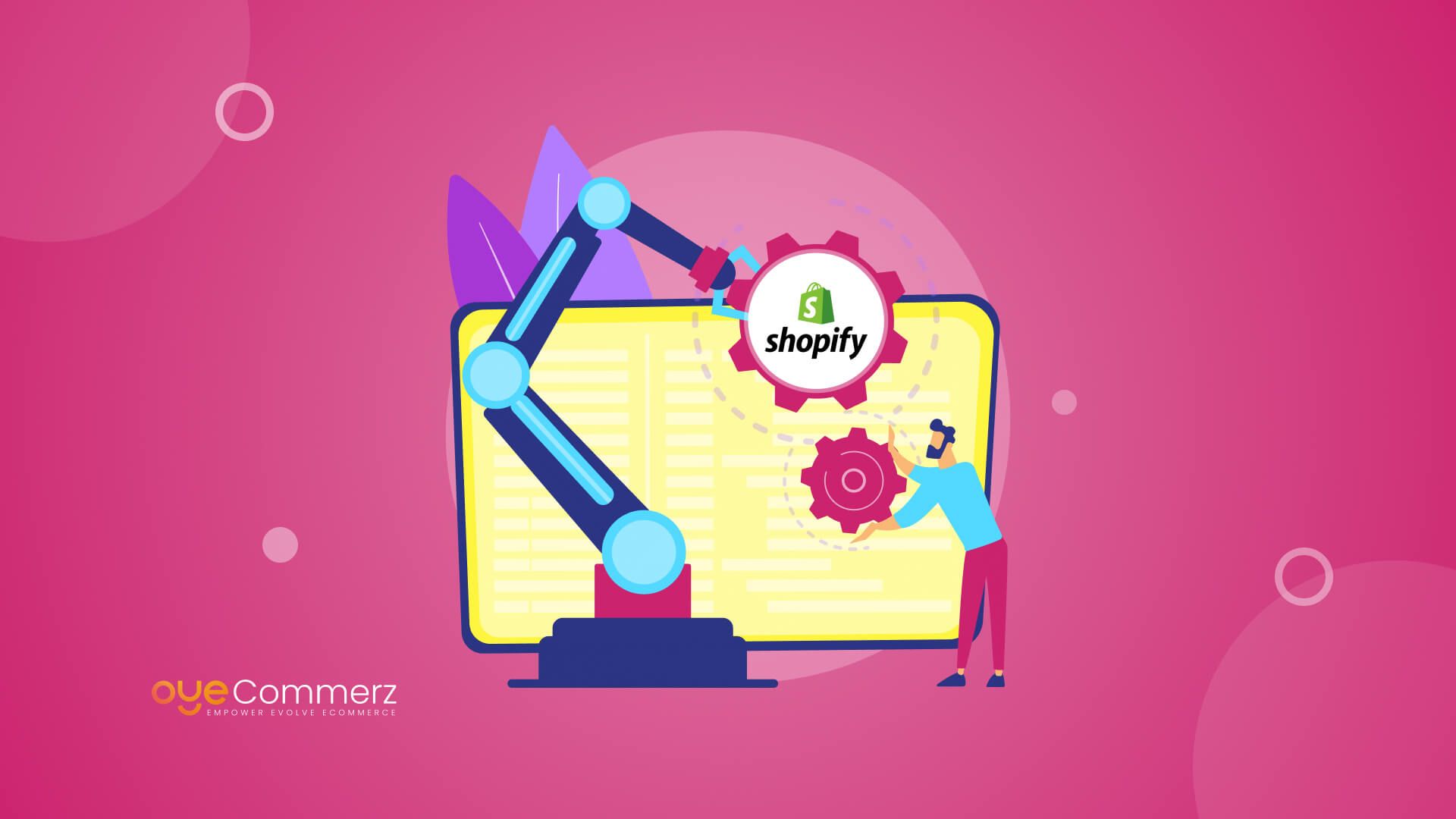Ever since the creation of e-business systems for enterprises, nobody wants a business process that is slow or full of errors. While Shopify is still serving as the foundation for millions of eCommerce startups, the demand for fast and efficient quality assurance for Shopify applications has risen sharply. As the number of downloads increases and companies rely on their applications to grow revenue, Shopify custom app creation Services and test automation software have become crucial to eliminate ineffective testing, unresponsive application performance, and unsatisfactory customer interfaces.
Primarily, test automation has a positive impact because it helps businesses accelerate their development cycles, minimize errors caused by testers and reduce the scale of efforts required to vigorously test applications. From the existing statistics, apps are subjected to increased pressure, especially during the core period for shopping. Based on figures drawn from the latest Shopify app stress tests, apps got up to 40% more stress failures during peak usage with inadequate automated tests.
This blog will explore the best Shopify app test automation software, evaluate their capacity and performance of additional functionalities for complex Shopify environments.
Table of Contents
ToggleWhy Test Automation is Crucial for Shopify Apps
Enterprise-Level Quality Control
The needs of enterprise-level businesses are unique in the e-commerce space. Unlike smaller operations, these companies need to manage massive traffic, complex product catalogs, and constant feature updates. Shopify app automation tools address these needs by providing a high level of test coverage while ensuring speed and scalability.
Addressing the Challenges of Manual Testing
Manual testing, though valuable in its own right, has clear limitations for large-scale Shopify stores. It is labor-intensive and prone to human error, and can’t keep pace with the rapid update cycles demanded by today’s e-commerce apps. In contrast, test automation offers:
- Consistency and repeatability in testing processes.
- Speed in detecting bugs across multiple iterations.
- Scalability to handle multiple tests without increasing labor.
Improving App Load and Stress Testing Through Automation
Automated testing frameworks allow businesses to set up precise tests that mimic real-world loads. In a 2023 Shopify report on load testing, it was found that 80% of app crashes occurred under peak load conditions. By using automation to simulate these conditions, companies can pinpoint vulnerabilities before users experience any issues. Additionally, automated frameworks give engineers the capacity to adjust parameters based on fluctuating traffic, helping identify stress points early on.
Criteria for Selecting Shopify App Test Automation Software
When selecting test automation software for Shopify apps, several criteria stand out. These tools must be comprehensive enough to cover diverse testing needs while integrating smoothly with Shopify’s architecture.
1. Scalability and Flexibility
At the enterprise level, a tool’s scalability can’t be overstated. Automation software must adapt to handle millions of users, fluctuating traffic, and the need for concurrent testing environments. Scalability allows the same tool to be used across varying departments and test suites, providing an all-in-one solution for enterprises.
- Load testing capabilities: Can it handle simultaneous connections across multiple geographies?
- Adaptability to different coding languages: Does the software support the languages and frameworks you already use in development?
Popular frameworks like Selenium and Appium are widely chosen for their scalability and language flexibility, offering compatibility with multiple scripting languages.
2. Integration with Shopify’s Ecosystem
A suitable Shopify app testing framework should offer integrations with popular development platforms, CI/CD pipelines, and debugging tools. This enables seamless automation from coding to deployment and maintenance.
- API Compatibility: Many Shopify apps rely heavily on APIs. Test automation tools must therefore interact smoothly with Shopify’s API, ensuring no functionality is compromised.
- Plug-in Capability for CI/CD Pipelines: Does the tool work seamlessly with Jenkins, CircleCI, or other popular continuous integration and delivery tools?
For instance, tools like BrowserStack and LambdaTest are highly regarded for their Shopify API compatibility, making it easier to integrate their automated tests with real-time CI/CD workflows.
Top Shopify App Test Automation Tools in 2024

3. Selenium: The All-Purpose Testing Framework
Selenium has been a mainstay in the test automation ecosystem for years. It’s open-source, adaptable, and works well across various browsers and devices. For Shopify app developers, Selenium’s flexibility offers unique advantages:
- Wide language support: Selenium supports several programming languages like Java, Python, and JavaScript, making it easy for teams to integrate.
- Cross-browser testing capabilities: Selenium enables testing across Chrome, Firefox, Safari, and other major browsers, ensuring apps perform seamlessly for all users.
- Open-source Advantage: Being open-source, Selenium offers the benefit of a huge community, constant updates, and flexibility, all without licensing costs.
4. BrowserStack: Cloud-Based Cross-Browser Testing
BrowserStack is known for its comprehensive cloud-based approach, allowing teams to test Shopify apps across real devices and browsers without maintaining a physical device lab.
- Scalability through the cloud: Tests can be run on multiple devices simultaneously.
- Real Device Testing: Real-world testing is possible with actual devices rather than emulators, providing an accurate user experience.
- Developer-Friendly Integrations: Works with CI/CD tools like Jenkins and Travis CI, enabling a fully automated testing pipeline.
Case Study Insight
E-commerce app creators utilizing BrowserStack noted a 20% increase in user satisfaction, as real-device testing led to smoother navigation across all major devices.
5. LambdaTest: A Scalable Solution for Multi-Browser Compatibility
LambdaTest is another robust cloud-based testing platform that enables e-commerce enterprises to run tests on an extensive variety of browser and device combinations. It’s particularly valuable for Shopify app developers seeking scalable, efficient solutions to ensure compatibility across diverse environments. With LambdaTest, testing on real browsers becomes streamlined, making it easy to identify and fix any compatibility issues promptly.
- Extensive Browser Coverage: LambdaTest offers a wide array of over 3,000 real browser and operating system environments.
- Seamless Integration Capabilities: It integrates with major tools like JIRA, GitHub, and Bitbucket, making bug reporting and tracking a breeze.
- Parallel Testing for Quick Results: LambdaTest allows for parallel test execution, speeding up the overall QA process.
6. Appium: Best for Mobile Shopify App Testing
Appium is a preferred choice for testing mobile Shopify apps, particularly those running on Android and iOS. Its open-source nature, combined with cross-platform capabilities, makes it a powerful tool for e-commerce businesses aiming to ensure their Shopify apps run seamlessly on mobile devices, a crucial aspect given the high rate of mobile shopping today.
- Cross-Platform Compatibility: Appium supports both Android and iOS, allowing QA teams to write tests that run across different devices without additional configurations.
- Support for Multiple Languages: With support for languages like Java, Python, and JavaScript, Appium easily integrates with existing development ecosystems.
- Integration with CI/CD Pipelines: Appium’s compatibility with Jenkins, Bamboo, and other CI/CD tools makes it ideal for teams who want to automate mobile testing within their continuous deployment framework.
7. HeadSpin: AI-Driven Insights for In-Depth QA
HeadSpin is a next-generation automation platform that offers AI-powered testing insights, making it especially useful for large-scale Shopify apps with complex user journeys. Its AI-driven capabilities set it apart, as it identifies not only functional issues but also helps optimize performance, including load times, response rates, and user engagement.
- Comprehensive Analytics for Performance Testing: HeadSpin goes beyond bug detection, providing insights into app performance under different conditions, including location-based testing.
- AI-Powered Defect Detection: By using AI, HeadSpin can pinpoint potential issues more precisely, enhancing the quality of results and reducing time spent on debugging.
- Global Device and Network Testing: This feature enables e-commerce brands to test their Shopify apps under various network conditions, ensuring a smooth experience worldwide.
Take the Next Step in Compliance Today with Oyecommerz
Oyecommerz specializes in advanced Shopify app development and QA services tailored for enterprises aiming to enhance their app’s performance, security, and user experience. With expertise in personalized Shopify app development, our dedicated team excels at implementing top-tier Shopify app testing frameworks. We help your business leverage the power of automated testing, ensuring your app meets the demands of high traffic, rigorous compliance standards, and evolving market needs.
Reach out to Oyecommerz today to optimize your Shopify app’s quality and elevate your brand’s e-commerce success.
Let's build your custom Shopify app today!
Conclusion
In the modern environment where the establishment of online stores is as important as air, backup applications like Shopify app test automation software are obligatory. When the companies grow, automated QA makes certain that apps on the Shopify platform are safe and perform to the optimal best regardless of the situation.
Every tool presented from Selenium and BrowserStack to Appium and HeadSpin has its benefits that can be applicable for unique testing requirements – varied compatibility with browsers, the solidity of testing mobile applications, or the opportunity to make intelligent decisions based on artificial intelligence.
Which Shopify app automation tool to choose depends on what you want to achieve, be it cross-device testing, testing performance, and more. Paying for the right tool aids your app reliability and enables you to outcompete rivals in today’s competitive e-commerce market.




